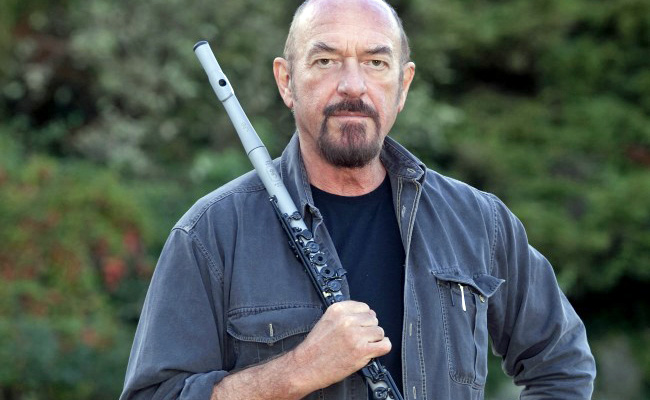Entering the final stretch of one of the most divisive presidential election cycles in American history, it can be difficult to conceive of a political point of view beyond the polemic that mainstream cable news has been feeding us for the past year. But for Ian Anderson, it’s hard to understand exactly how the United States has come to find itself facing the possibility of a Trump White House.
It’s not that Anderson, the founder of progressive rock pioneers Jethro Tull, is a bleeding-heart liberal. He is a proponent of responsible gun ownership and a fan of some of fairly hawkish figures—like Condoleezza Rice and his friend Tony Snow, former press secretary under George W. Bush.
Then again, it helps to remember that Anderson hails from the U.K.—from the proud and fiercely independent country of Scotland, to be precise. And while he is a longtime student of American culture and politics, he has the ability to view our country from the outside, like a rock & roll Alexis de Tocqueville.
“In all of sane Europe, we are pretty liberal and sensitive about the rights that people have, as long as they don’t force them unpleasantly on others.” He shares this perspective voluntarily, without prompting, briefly steering a recent conversation away from music and into politics and religion.
All of this makes sense, of course, when you consider Anderson’s background and take a listen to his discography. On the title track of Jethro Tull’s fourth LP, 1971’s Aqualung, Anderson seems to toggle between self-righteous derision and true empathy as he narrates a day in the life of a tramp. At first, this disheveled character is “eyeing little girls with bad intent”; later he is nursing a bum leg, wheezing and dying alone on a cold park bench. Fast forward to “Farm on the Freeway,” from 1987’s Crest of a Knave, and we find Anderson pining for a pastoral past that is disappearing. It’s classic “Morning in America” romanticism, until he gets to the cause: a new airport is being built, freeways are slicing through the heartland and a “silicon chip factory” is pushing out a family farm.
Even if Anderson weren’t so forthcoming about his views, fans of Jethro Tull would find plenty of clues to his personal philosophy by looking up the historical figure that shares his band’s name.
The band is named after an English agriculturalist and inventor who lived from 1647 to 1741. A student of European farming practices, Tull sought to improve efficiency in the field with his patented “seed drill,” which could mechanically and simultaneously drill holes and sow seed.
Anderson comes to San Jose later this month with his new touring production, Jethro Tull—a rock opera of sorts, which reimagines the life of the historical Tull through a story set in the near future. The performance features hits from the Jethro Tull catalog, as well as new material, and confronts issues such as climate change, big agriculture and population growth.
Here, again, we see the continued exploration of a theme that has interested Anderson for the majority of his career—balancing a yearning to return to simpler times, while keeping an eye on the horizon and the promises of modernity.
“There is an element of Scottish-ness and the folk traditions that have always stayed with me to some degree,” he says. The same goes for religion. “I’m not a Christian,” he continues—noting that he appreciates the Bible in the same way he appreciates Shakespeare, opera and the blues. “It’s a good story. It has an enormous worth for society.”
It would seem that Anderson is adept at balancing disparate views—just as he is known for balancing on one foot while taking flute solos. And it is clear that he is adept at telling stories.
Stories are important. They can remind us of where we’ve been and give us a sense of where we want to go. They serve to both inform the rational mind and also temper it against cold, unethical and purely utilitarian decision-making.
In one month’s time the American people will weigh the stories they’ve been told over the past many months and compare them with what they believe to be true in their hearts. One hopes that on that day both rationality and empathy will be in proper balance.
Jethro Tull
Oct 22, 8pm, $40-$65
City National Civic, San Jose



